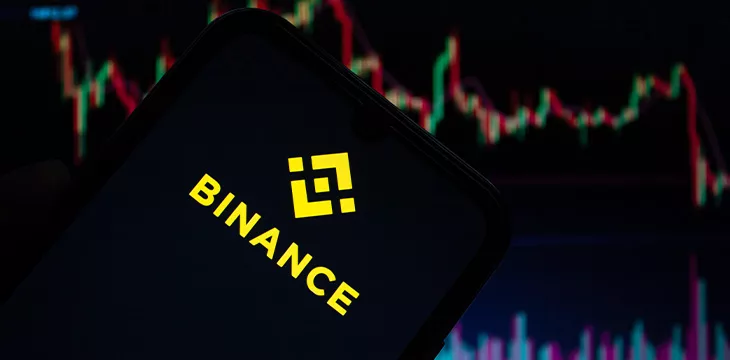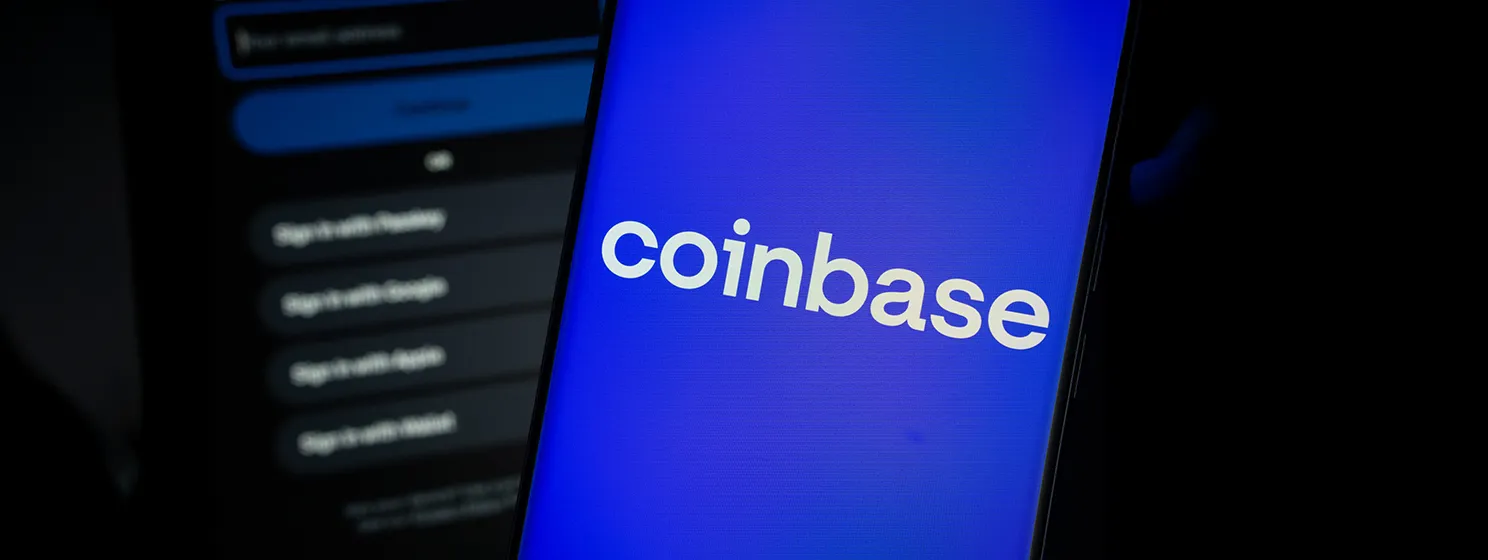|
Getting your Trinity Audio player ready...
|
Europe’s new stablecoin regulations have forced Binance to warn customers of fresh restrictions on trading with fiat-denominated tokens, and Tether isn’t happy.
On June 3, Binance announced its latest efforts to prepare for implementing the stablecoin provisions in the European Union’s Markets in Crypto Assets (MiCA) regulation. While the full MiCA rules don’t kick in until December, the rules regarding stablecoin activity take effect on June 30.
MiCA classifies stablecoins as ‘significant’ or having ‘systemic importance’ if they meet three of seven criteria, such as having more than €5 billion ($5.4 billion) in fiat reserves backing its issued tokens, processing 2.5 million daily transactions/transaction volume exceeding €500 million ($544 million) per day, or having over 10 million holders.
Binance stated that the new rules “will have a significant impact on the stablecoin market” in the European Economic Area (EEA), dividing the field into ‘Regulated’ and ‘Unauthorized’ tokens. As such, Binance will “restrict the availability of Unauthorized Stablecoins for EEA users across its product offerings” as of June 30.
As of that date, Binance Convert functions for unauthorized stables will be in ‘sell-only’ mode for EEA users. Customers can convert these stables into other digital assets or regulated stables and fiat, but purchases will be off-limits. Customers can still spot trade unauthorized stables “until further notice,” and custody/wallet services will continue as normal.
Most other services on Binance—rewards, margin trades, earn subscriptions, loans, auto-invest, Binance Pay, Send Cash, NFT purchases, gift cards, P2P/OTC buys—are dropping support for unauthorized stables.
Binance CEO Richard Teng tweeted his assurance that the exchange “won’t delist any unauthorized stablecoins on spot but will limit their availability for EEA users.” Teng also promised that updates on MiCA-regulated stables “will be shared soon.”
The Binance customer support account tweeted that “there are few Regulated Stablecoins with limited liquidity that may not be sufficient to support sudden demand across the industry. Over the coming months, we expect to see more Regulated Stablecoins available in the market, which will allow for the market to fully switch to Regulated Stablecoins over time, ensuring that the objectives of MiCA are fulfilled.”
Last month, Bloomberg reported that Kraken was “actively reviewing” what changes might be required to conform to MiCA. Marcus Hughes, the U.S.-based exchange’s head of regulatory strategy, said Kraken was “absolutely planning for all eventualities, including situations where it’s just not tenable to list specific tokens such as USDT [Tether]” in EEA markets.
Mark Greenberg, Kraken’s asset growth and management division, subsequently tweeted that the exchange had “no plans to delist [USDT] at this time.” However, Greenberg added that Kraken “will of course follow all legal requirements, even those we disagree with. But the rules are not finalized yet and we continue to do everything we can to continue to offer all relevant stablecoins to our European customers.”
The OKX exchange ditched USDT trading pairs for EEA customers earlier this year in acknowledgment of the new regulatory regime. A Tether spokesperson told Bloomberg that exchanges should “rightfully focus on EUR liquidity for European customers, while maintaining USDT as an on-ramp/off-ramp solution.”
Meanwhile, Jeremy Allaire, CEO of Tether’s largest and slightly more compliant rival Circle (USDC), couldn’t resist twisting the knife in Tether’s side, retweeting Binance’s announcement and celebrating the “major changes coming in European digital asset markets on June 30.”
Banking the unbanked
Tether CEO Paolo Ardoino has long complained about MiCA’s stablecoin rules, taking particular exception to the requirements for ‘systemic’ stables to store the bulk of their fiat reserves in cash across multiple local banks. Tether claims to keep most of its $112 billion in fiat reserves in the form of U.S. Treasury bills, allegedly custodied by Wall Street giant Cantor Fitzgerald (NASDAQ: ZCFITX).
In April, Ardoino confessed to being “rather pessimistic” about Europe’s regulatory approach, particularly its “very restrictive measures on stablecoins.” Ardoino said then that “it’s already very difficult to get just one” bank, let alone several, if you’re a ‘crypto’ operator.
Tether has indeed found it hard to maintain ties with any banks outside the sketchier types in the Bahamas, including the controversial Deltec Bank & Trust. It doesn’t help that seemingly every week brings fresh headlines of money launderers, romance scammers, drug traffickers and terror groups that seemingly can’t operate without Tether.
Following Binance’s announcement, Ardoino told The Block that Tether “remains concerned that MiCA contains several problematic requirements” that “could not only render the job of a stablecoin issuer extremely complex but also make EU-licensed stablecoins extremely vulnerable and riskier to operate.”
Translated, that means Tether is increasingly aware that it’s increasingly unwelcome wherever there’s anything other than threadbare regulatory enforcement. (BTW, we hear the weather’s lovely in Kamchatka this time of year.)
Les nouvelles propriétaires
MiCA’s rules will require exchanges to hold a valid license in an EU market, from which they can accept customers from across Europe. In Binance’s case, the company long ago staked out France as their best bet. However, things took a turn this time last year when the Paris Public Prosecutor’s Office opened an investigation into suspected ‘aggravated money laundering’ by criminals using the exchange.
Little has been heard of this investigation since, but the recent sentencing of Binance founder Changpeng ‘CZ’ Zhao in the United States on charges of facilitating money laundering has shone an unwelcome spotlight on the exchange’s historic disdain for regulatory compliance. On May 31, CNBC reported that CZ had begun serving his four-month sentence at a minimum security federal prison in Lompoc, California.
CZ might not be leading Binance’s day-to-day activities, but he’s believed to have retained his majority ownership stake in the world’s largest digital asset exchange by transaction volume. Efforts are now being made to scrub CZ’s name from the Binance France offshoot.
On May 28, Binance announced that Binance France is “making changes to its shareholders and group structures as part of a global restructuring project.” The changes came after French financial regulator Autorité des Marchés Financiers (AMF) asked Binance to “regularize the situation” resulting from CZ’s $4.3 billion settlement of his U.S. criminal charges last November.
Binance’s announcement—which doesn’t refer to CZ by name, only the exchange’s “historical beneficial owner”—said the unperson‘withdrew’ from his ownership stake in the French operation.
Binance France is now in the hands of two unspecified “new shareholders,” both of whom are “co-founding members of the Binance team, none of whom have been involved in historical issues. They each hold 50% of the capital of Binance France.”
French corporate info website Pappers identified the two owners as Lihua He and Yulong ‘Allan’ Yan. Little is known about He but Yan was listed in Binance’s 2017 white paper as the exchange’s first product director.
It was thought that Binance Baguette might name its new owner as Yi He, Binance co-founder and mother to CZ’s children. While Teng was named Binance’s CEO in the wake of CZ’s settlement, few doubt that Yi He is the one calling the shots in CZ’s absence. However, perhaps that wouldn’t have been enough to convince the AMF that any substantive ownership change had occurred.
Watching the watchmen
Meanwhile, the U.S. government has finally approved the third-party monitors who will cast a critical eye over transactions flowing through all of Binance’s various geographical appendages.
Frances McLeod, a founding partner of U.K.-based Forensic Risk Alliance, will scrutinize Binance’s dealings (for the next three years) on behalf of the Department of Justice (DoJ). Sharon Cohen Levin of the U.S.-based Sullivan and Cromwell law firm will scrutinize (for the next five years) on behalf of the Department of the Treasury’s Financial Crimes Enforcement Network (FinCEN).
Sullivan and Cromwell’s involvement was reportedly rejected by the DoJ in April due to the firm’s controversial involvement with Sam Bankman-Fried’s failed FTX exchange. However, FinCEN apparently stuck to its guns in selecting Cohen Levin, who previously led the money laundering unit at the U.S. Attorney’s Office for the Southern District of New York.
This spells the end of Binance’s ‘see no evil’ phase, during which it rolled out the welcome mat for customers looking to launder significant volumes of digital assets without fear of being rumbled. Binance is now trying to incentivize customers who were onboarded with little to no identifying information by offering them $3 (in USDT) to verify their ID.
It remains to be seen whether this half-hearted ‘know your customer’ effort represents a new commitment to compliance or just more performative Binance lip service. Either way, we’re sure Mexican drug cartels will forego the chance to launder more millions and snap up that sweet $3 offer rápidamente.
Meanwhile, perhaps the two monitors might be interested in whatever is currently going on with the BTC/USDT trading pairs on Binance.com and the new Binance Thailand exchange. Inquiring minds want to know.
Watch: Teranode is the future of the Bitcoin network

 05-10-2025
05-10-2025 





